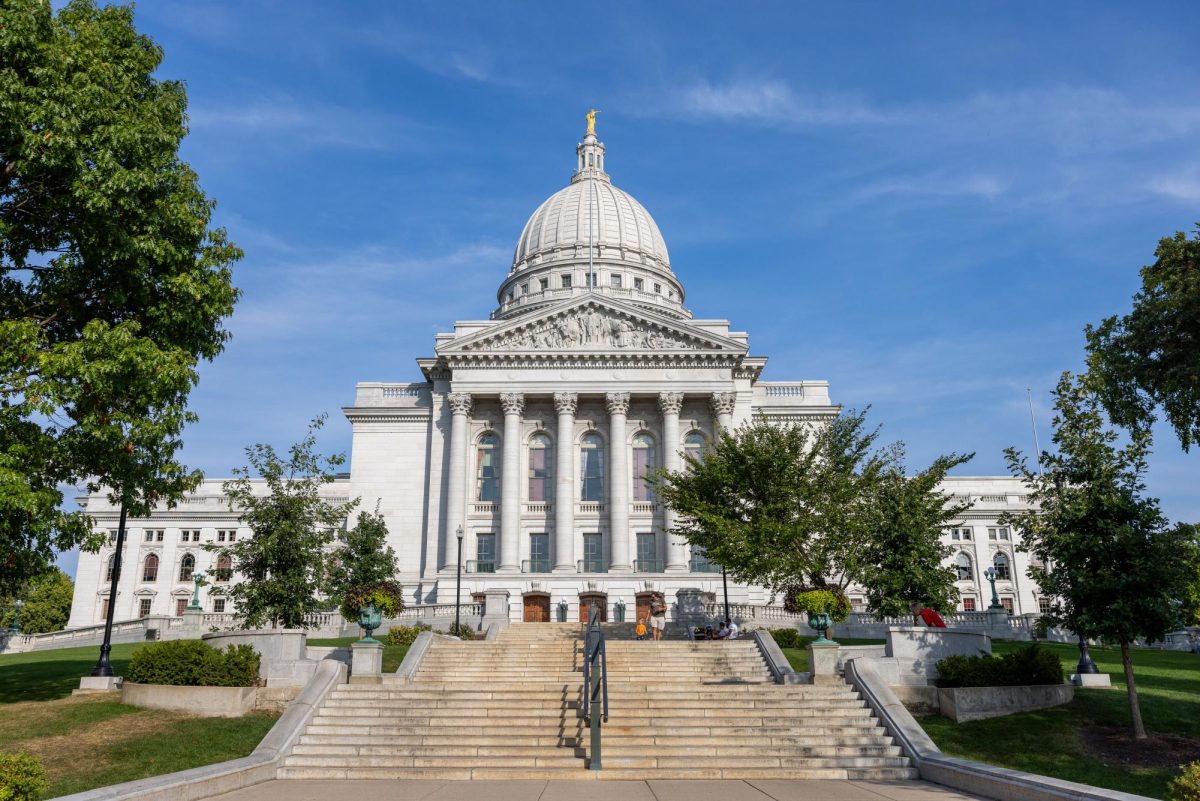The Dobbs decision of June 2022 allowed Wisconsin state representatives to enforce an abortion ban that lasted for over a year. During that period, residents from every Wisconsin county traveled to Illinois to receive abortion care, resulting in a burden of over 5,000 additional patients for clinics in Illinois, according to a report from the office of Sen. Tammy Baldwin, D-Wis.
Fortunately, in September 2023, a Dane County judge ruled to allow abortions in Wisconsin up to 20 weeks into pregnancy. But, the report finds that Wisconsin’s abortion rates are still down by 38% compared to pre-Dobbs levels.
More shockingly, the report finds that residents in 69 of Wisconsin’s 72 counties still find abortion inaccessible in their home state, leading them to seek services in neighboring states like Illinois.
This news does not come as a surprise considering Wisconsin’s history of hostility toward abortion laws. The consequences of this alarming statistic are not only appalling, but also extremely far-ranging. A report from the Center for American Progress maps travel times for abortion services to be over an hour long in northern Wisconsin — a statistic that is significantly higher than most, and more than double some wait times in Illinois.
The extensive wait times in Wisconsin feed further inequalities in access to care. In other words, Wisconsinites without the socioeconomic means and social support to receive care in different parts of the country will not have the same rights over their body as their counterparts. Such inequity risks the immoral muddling of a woman’s basic human rights with socioeconomic hierarchies.
When Wisconsin residents are forced to seek abortion care services in neighboring states, additional stress is also placed on medical facilities in these states.
In fact, Sen. Baldwin finds that wait times in Illinois’ abortion clinics have increased to an alarming 3 weeks due to the influx of patients from Wisconsin. By instilling rigid abortion laws, Wisconsin is essentially forcing its neighbors to shoulder its growing load of patients. Not only is this unjust, but it has lasting financial and medical implications for residents in Illinois.
It is obvious that Wisconsin needs to take responsibility for the consequences of its own policies. The post-Dobbs period calls for Wisconsin state officials to invest in maternal care facilities — specifically, abortion care clinics.
It is simply unacceptable that women in 19 Wisconsin counties do not have access to maternal care, let alone abortion services, according to Sen. Baldwin. Since 2009, 19 rural hospitals put an end to their obstetrics services, leaving women in these counties stranded in a horrifying maternal care desert.
According to WTTW, within 24 hours after announcing its services would resume, the Planned Parenthood in Milwaukee was completely booked. It is evident that the demand for abortions far exceeds the supply. In fact, Wisconsin only has four abortion clinics as of June 2024, according to the Guttmacher Institute.
These statistics should be enough to send state officials into panic. But instead, politicians are too busy planning their next attack on abortion rights. For instance, in January 2024 — only months after abortion was made legal in Wisconsin — officials in the Wisconsin Assembly approved a bill proposing a 14-week abortion ban, according to the Associated Press.
While there is much work to be done, it is important to note that Wisconsin’s September 2023 ruling is a large step forward from the total abortion ban previously in place. After all, data shows that most abortions occur within the first trimester of their pregnancy. But, there is still a population of late-term abortion seekers that are being deprived of their choice to do so.
Even more disturbingly, a study in the Women & Health journal shows a stark racial disparity in early and late-term abortion seekers. The report found that the ratio of Black to white early term abortion seekers was around 26% to 73%.
But, the ratio was 40% to 59% for late term abortions. The researchers found sociocultural disparities that led to significant delays in when Black women were able to seek abortions. This leaves a disproportionate number of Black women with no choice but to follow through with an unwanted pregnancy.
Disparities also exist in minority women’s access to and need for legal abortion care. For instance, the Guttmacher Institute finds that women of color are less likely to have access to contraceptives due to geographical and financial constraints, leading to a disproportionately high need for abortion in minority groups.
Minority groups are also burdened with a lack of access to care for similar reasons, according to the Institute. Women of color already facing severe consequences of these health inequities do not need their load worsened by overstrict, constantly evolving abortion laws.
There is no doubt that the consequences of these bans are lasting. From 2022-2023 to 2023-2024, the applications for the OB/GYN specialty dropped by 10.4%, according to Sen. Baldwin. If we undergo another period without Roe v. Wade there is no doubt these numbers will worsen, leading to an even more treacherous future for maternal care.
It is well beyond the time state and national officials shift their focus from another abortion ban to improving the quality and access to maternal care. This is the most clear way to improve the health of mothers and newborns across the nation, a goal that everyone can commit to, regardless of political or ideological association.
Aanika Parikh (aaparikh5@wisc.edu) is a junior studying molecular and cell biology with a certificate in health policy.




